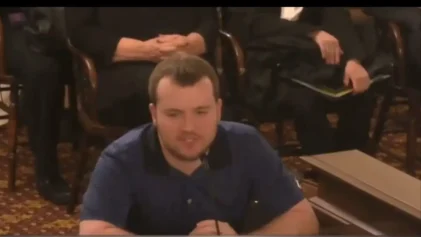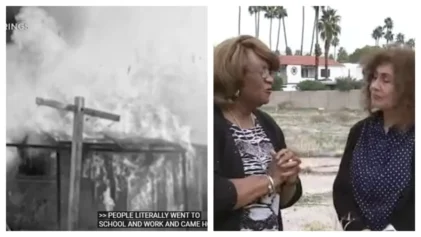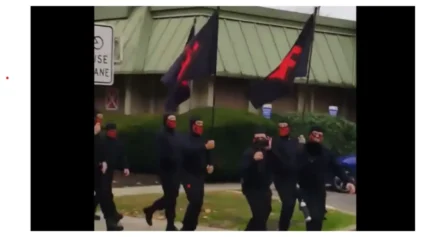A University of Virginia professor and historian learned that her grandfather, a former sheriff, allowed the lynching of a Black man back in 1947 in Prentiss, Mississippi.
Grace Elizabeth Hale told the Los Angeles Times that she was shocked to learn that her grandfather, Prentiss Sheriff Oury Berry, had allowed the lynching of a Black man named Versie Johnson and helped cover up the crime. Hale grew up hearing stories about Berry saving Johnson and even giving a speech preventing Johnson from being murdered by an angry mob. She shares her story in the new book, “In the Pines: A Lynching, A Lie, A Reckoning.”

Johnson was a sawmill worker who had been accused of raping a pregnant white woman in Prentiss. The historian learned that Johnson and the woman may have been having a consensual relationship, but the woman never came forward. Johnson was arrested and murdered, with law enforcement officials claiming that he tried to grab one of their guns and escape.
An article in the McComb Enterprise-Journal claims that Berry, State Highway Patrolman Andy Hopkins and State Highway Patrolman J. S. Puckett shot Johnson while he was in custody after he attempted to grab one of their guns. The Burnham-Nobles Digital Archive reports that the district attorney, E.B. Williams, said the men were “perfectly justified in what they did” and that a trial would be “a mere formality” meant to “clear the names of the white men.”
Hale told the Los Angeles Times that Johnson was actually lynched and that her grandfather covered up the murder. She first began researching the story as a graduate student and soon realized the story she’d been told could not have been true. After white supremacists descended on her town of Charlottesville, Virginia, for the Unite the Right Rally back in 2017, she realized she had to continue looking for the truth.
“I had grown up with a story of my grandfather’s heroism. And I thought my not wanting to know was symptomatic of a lot of white Americans,” she recalled. “I wanted to make the point that this erasure of history is foundational to why racism and white supremacy persists.”
Hale said that she tried to honor Johnson by sharing details about his life in the book and telling the truth about his murder.
“There’s nothing that I can do about these actions and his death,” she said. “But I could bring him to life on the page to whatever degree I could and acknowledge his life.”
While Hale thought it was important to acknowledge the truth of her grandfather’s complicity in Johnson’s murder, she admitted that her mother does not accept the truth.
“Her choice was to not reexamine the past,” said Hale. “This story is not something she accepts. It’s really hard for all of my family members and they didn’t get to decide. It was certainly something that they would’ve rather me not do. I just want to leave that at that.”


